The XVI Biennial IASC-Conference is hosted and organized by the Research Team ‘Institutions for Collective Action’ of the Department of History and Art History, and the researchers affiliated with the Strategic Research Theme ‘Institutions for Open Societies’, based at Utrecht University. Representatives of both team form the Local Organizing Committee, that is supported by a Societal Advisory Board. Practical support is provided by the IASC2017 Conference Secretariat, as well as by the Secretariat of the International Association for the Study of the Commons.
Local Organizing Committee
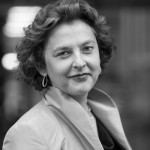 | prof. dr. Tine De Moor (Chair)Tine De Moor is professor ‘Institutions for Collective Action in Historical Perspective’ at the Department for Social and Economic History of Utrecht University. Through an interdisciplinary approach for the study of the long-term evolution of rural commons, De Moor has been able to revise the historical basis of the widely debated metaphor of Hardin’s ‘Tragedy of the Commons’, especially focusing on the hardly studied historical deficiencies in his theory. She has published numerous journal articles as well as sveral books on commons issues. Tine De Moor is also (co-)founder of the peer-reviewed International Journal of the Commons, member of the Executive Council of the IASC. From January 2015 until January 2017 she was President of the IASC; after the completion of her term as President, she now is Past-President (2017-2019) of this association. She is currently in charge of or involved in several projects on institutions for collective action, of which one awarded with an NWO VIDI-Grant. In December 2012, she was admitted as member of the Young Academy of Europe, and in March 2014. she was installed as member of The Young Academy of The Royal Netherlands Academy of Arts and Sciences (KNAW). |
|
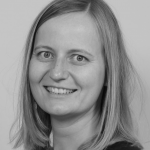 | dr. Anita BoeleAnita Boele studied Medieval History and Political Science (BA) at Leiden University. In January 2013, she defended her PhD-thesis at the University of Groningen, entitled ‘Members of one body. Representations of the poor, poor relief and charity in the Northern Netherlands 1300-1650’. In 2014, Boele will join the project “Nature or Nurture” as post-doc researcher, focusing on the institutional variety in premodern old age provisions. Since 2011, Boele is also involved as researcher at The Netherlands Institute for Social Research (SCP), studying recent developments in citizens' initiatives and self-organization. From April 2013 until December 2013, she worked as an advisor for the Council for Social Development (RMO). |
|
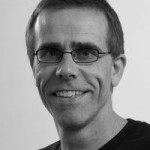 | prof. dr. Vincent BuskensVincent Buskens is Professor of Theoretical Sociology at Faculty of Social and Behavioural Sciences of Utrecht University since May 1, 2011. At February 13, 2014, he gave his inaugural lecture titled "Cooperation in context: Experimental sociology 2.0." Buskens leads the research line Cooperation in social and economic relations at the Department of Sociology and he is a member of the national research school ICS. His most prominent research focuses on the various forms of cooperation within our society. More specific, he researches the impact of social networks on cooperation. Some networks facilitate cooperation better than others. Buskens tries to explain what exactly makes that one network shows itself more suitable than the other. |
|
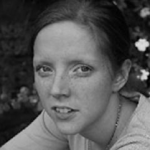 | dr. Sarah CarmichaelSarah Carmichael is a postdoc researcher at the Department of Socioeconomic History at Utrecht University. She obtained her PhD in 2016 with a dissertation thesis on marriage, family, and gender inequality. Her research interest lies in the interaction between agency and economic development, as well as with economics and interdisciplinary approaches to institutional phenomena. |
|
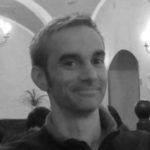 | dr. Corry GellatlyCorry Gellatly is a biologist whose research is broadly in the areas of population biology, evolutionary theory and human social evolution. As a visiting researcher with the Social and Economic History research group since 2011 and now an in situ postdoctoral researcher from January 2014 on, Corry has been applying his expertise with web and database technologies to the collation and analysis of historical datasets, including the reconstruction of historical populations from genealogical records. He works in collaboration with the Institute for Ageing and Health at Newcastle University. |
|
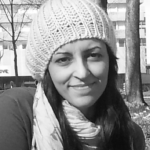 | dr. Amineh GhorbaniAmineh Ghorbani is an Assistant Professor at the faculty of Technology, Policy and Management (TBM) of Delft University of Technology. She obtained her MSc. in Computer Science (Artificial intelligence) from University of Tehran (Iran) (2009, honors) and her PhD from Delft University of Technology (2013, cum laude). Her current area of research is modelling dynamic policies and institutions in socio-technical systems. She is using agent-based modelling and simulation to gain insights into how institutions evolve. Her main areas of interest are agent-based simulation for decision support, dynamic policy modelling, evolution of institutions, adaptive governance, norms, culture, and collective intelligence. |
|
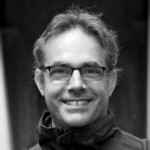 | prof. dr. Marco JanssenMarco A. Janssen is professor at the School of Sustainability and Director of the Center for Behavior, Institutions, and the Environment of Arizona State University (Tempe, US). He is a social scientist with a background in mathematics. His research focuses on the interaction of cognitive, institutional, and ecological processes to understand collective action problems. He studies these interactions to understand the conditions for sustainable outcomes in various applications in the past, present, and future, and from local to global scales, using computational models, such as agent-based models, in combination with laboratory and field experiments, surveys, case study analysis, and stakeholder workshops. |
|
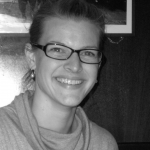 | dr. Charlotte StörmerCharlotte Störmer studied biology at the universities of Osnabrück, Giessen, and Vienna with a main interest in anthropology and sociobiology. Her PhD-project “Der Einfluss von Mortalität auf menschliche Lebensverläufe – Eine Analyse historischer Familiendaten aus Deutschland, Finnland und Kanada (17.-19. Jahrhundert) vor dem Hintergrund der Life History Theory” (funded by the German Volkswagen Foundation) at the universities of Giessen (Germany) and Sheffield (UK) combines aspects of evolutionary biology and historical demography. The study focusses on the impact of high levels of mortality on survivability and reproductive timing in historic human populations. Besides her research in evolutionary biology, Störmer is also interested in historic family reconstitutions and has profound knowledge of data processing and database management. |
|
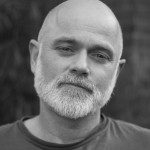 | dr. Frank van LaerhovenFrank van Laerhoven works as Assistant Professor at the Copernicus Institute of Sustainable Development at Utrecht University. He obtained his Ph.D. in Public Policy from Indiana University where he worked under the supervision of Elinor Ostrom. Since 2008, he is co-editor-in-chief of The International Journal of the Commons. His research focus lies with environmental governance, particularly the governance of ecosystems; his research interests lie with common-pool resources (CPRs), socio-ecological systems, decentralization reforms, local democracy and participation, and the solving of collective action dilemmas. |
|
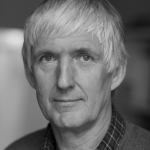 | prof. dr. Jan Luiten van ZandenJan Luiten van Zanden is Faculty Professor of Global Economic History at Utrecht University, Academy Professor at the Royal Netherlands Academy of Arts and Sciences (KNAW) and honorary professor at the universities of Groningen and Stellenbosch (South-Africa). He initiated and led several large international research projects on global societal issues, such as inequality, poverty and sustainability. Next to this, Van Zanden was Secretary General and (Vice-)President of the International Economic History Association, the most important international organization in the field of economic history. In 2009, he chaired the Local Organizing Committee of the XVth World Economic History Congress, that was held in Utrecht. In 2003, he was awarded the NWO Spinoza Prize amongst other things for bringing the entire economic history of the Netherlands to international prominence and for his exceptional leadership of such research projects. |
Conference Secretariat
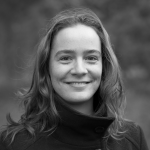 | Charlotte Witte MACharlotte holds a MA in Landscape History, which she studied at the University of Groningen. During her internship with Landschapsbeheer Drenthe, she has performed research on the possibilities and complications of current landscape management and governance by local inhabitants, comparing the practice of both the former and present markegenootschappen in Drenthe as well as current landscape management collectivities with the theories on ICA’s of Elinor Ostrom. She wrote her master thesis about sand-drifts on the Veluwe area from 1500-1900, comparing the measures of commoners and of the government to halt the drift-sands and evaluating the impact that governmental policy had on the functioning of commons. |
|
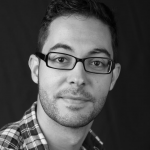 | Miguel Laborda Pemán MAMiguel holds a BA in Law (2009) and a BA in Business Management (2009) from the University of Zaragoza, Spain. In 2010 he graduated from the LSE (MSc. Political Economy of Late Development). In October 2011 he joined the ERC Project 'United We Stand' as PhD candidate. He studies the emergence and long-term dynamics of corporate collective action in pre-industrial Europe. His interests include global economic history, long-term economic growth and the political economy of development, particularly the debate on the deeper determinants of growth and the Great Divergence. Miguel will defend his PhD thesis at Utrecht University on May 11, 2017. |
|
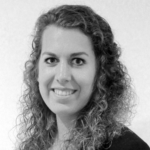 | Eva Vriens MScEva Vriens graduated from the research master Sociology and Social Research at Utrecht University in June 2016. In September 2016, she joined the ICA team as a PhD candidate. She received an NWO Talent Grant to study cooperation problems in institutions for collective action. In her project, she aims to generate insight in the combination of individual, social, and institutional factors that jointly enable sustained cooperation. She combines abstract experiments with observations of real-life behavior at Dutch mutual insurance companies ('Broodfondsen') to derive multi-faceted causal evidence on success factors for collective action, specifically aiming to uncover institutional opportunities for optimizing the success of these mutuals. |
|
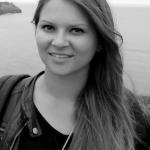 | Fijnanda van Klingeren BScFijnanda van Klingeren is second year research master Sociology and Social Research student at Utrecht University in, she obtained her Bachelor in Sociology with a minor in Law at the same university. She is currently an intern with the Department of History and Art History at Utrecht University, where she works on the dataset that resulted from the 'Common Rules'-project. She is currently working on her Master thesis on graduated sanctioning and cooperation on common land, for which she will use both case studies on common land and a laboratory experiment. Her main interest lies with multidisciplinary research: working with historical data in social research combined with game theory and economics. |
|
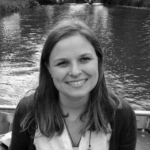 | Karen Freihorst BScKaren Freihorst is second year research master student in Migration, Ethnic Relations and Multiculturalism at Utrecht University. She obtained her Bachelor in Psychology with a minor in Latin American studies and Philosophy at the University of Groningen. She is currently a student assistant with the Department of History and Art History at Utrecht University, where she helps with preparing with the IASC2017 conference. In her master thesis, she is currently working on reconciliation and representation of colonial history. |
IASC Secretariat
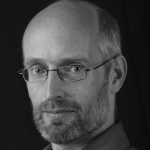 | René van Weeren BN BARené van Weeren holds both a BN in Nursing as well as a BA in History. He joined the Research Team 'Institutions for Collective Action' from the very start in 2009 and was as such closely involved with the organization of the Thematic IASC-Conference 'Design and Dynamics of Institutions for Collective Action in honor of prof. dr. Elinor Ostrom', held in 2012 in Utrecht. His work covers a wide range of topics, all related to institutions for collective action. His main research topics are commons and the use of genealogical data for historical research. As of July 2015, René van Weeren is the Executive Director of the International Association for the Study of the Commons, and as such he supports local organizers in preparing and organizing regional, thematic, and biennial conferences. He is also member of the supporting staff of the editorial team of the International Journal of the Commons. |
Societal Advisory Board
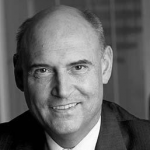 | prof. dr. Herman Wijffels (Chair)Prof. dr. Herman Wijffels is a Dutch prominent economist. During his career, he was chair of the Executive Board of Rabobank Nederland, chair of the Social and Economic Council of the Netherlands (SER), and Dutch governor with the WorldBank in Washington. He is politically also known as the 'architect' of the Dutch Balkenende IV-cabinet (2007-2010). At this moment he is co-chair of Worldconnectors and professor 'Sustainability and Societal Change' at the Faculty of Law of Utrecht University and affiliated with the Utrecht Sustainability Institute. |
|
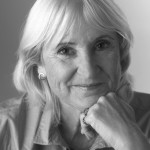 | drs. Trude Maas-de BrouwerTrude Maas is a prominent Dutch business woman. As independent supervisor, she works with some of the largest companies in the Netherlands, such as the Schiphol Group, Philips Electronics Nederland, ABN AMRO Bank, Arbo Unie, and the Van Gogh Museum. She especially focuses on issues of talent, education, and innovation. She is also chair of the Utrecht Development Board. Trude Maas has been a senator in the Dutch Senate (Eerste Kamer) in 1998-1999 and 2002-2007 and as such has been (among other) chair of the Permanent Committee for Science Policy and Higher Education and spokesperson for Economic Affairs. |
|
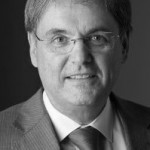 | dr. Kees BloklandKees Blokland is economist and founder of Agriterra, an organization that has, over the past years, supported and strengthened over a hundred agricultural organizations: millions of farmers, united in thousands of local unions and cooperatives have benefited from this success. Kees Blokland also intiated the foundation of Agripool, agro-info.net, AgriCord and Agri-ProFocus,which all focus on supporting farmers and other agricultural workers via their organizations and cooperatives. His main topics of interest are agricultural organizations, economic development, the role of unions and cooperatives, and the importance of employment options. |
|
 | dr. Steven de WaalSteven de Waal is founder and driving force of Public SPACE. In 2014, he obtained his doctorate from the Utrecht University School of Governance on his thesis 'The Value(s) of Civil Leaders. A study into the influence of governance context on public value orientation'. He works as expert in the public and non-profit sector (in the broadest sense), mainly focusing on issues of market forces, entrepreneurship, strategic positioning, and corporate governance. He has written several essays and is the co-author of numerous books on governance and entrepreneurship. De Waal was also the author who coined the concept of 'societal entrepreneurship'. Being an active citizen, Steven de Waal is closely involved with several societal organizations. |
|
 | Richard KraanRichard Kraan (1965) works as partner accountant at PricewaterhouseCoopers in Utrecht. Next to his work at PwC, he is closely involved with numerous events in and around Utrecht. He is a strong promotor of Utrecht's characteristic features and as such involved with events as the annual Utrecht Singel-run and the start of the Tour de France in Utrecht in 2015. Richard Kraan is also member of the Business Peloton Utrecht and the Utrecht Development Board. |
|
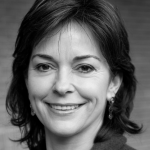 | drs. Jolande SapJolande Sap is a Dutch GreenLeft (GroenLinks) politician, with a background in economics and civil service. She has served as Member of Parliament from 2008 until 2012. In 2010, she was named Party leader as well as Parliamentary group leader of the GreenLeft party in the Dutch House of Representatives, which position she held until 2012. Jolande Sap is a specialist on social-economic issues and values economic independence as an important condition for freedom. She seeks to stimulate emancipation and fight social exclusion and prefers to work on practical policies that would promote self-realization, fairness, and durability. |
|
 | mr. Arjen van NulandArjen van Nuland is the Director of the Dutch Cooperative Council (NCR). NCR is a knowledge centre and meeting platform for Dutch cooperatives. He has worked as a Director of a Dutch agriculture cooperative and as a Management Consultant. He has studied Dutch Law and has a Master's in Business Administration (MBA). As the Director of NCR, Mr. van Nuland advises cooperatives on issues like governance, member commitment and cooperative values. |
